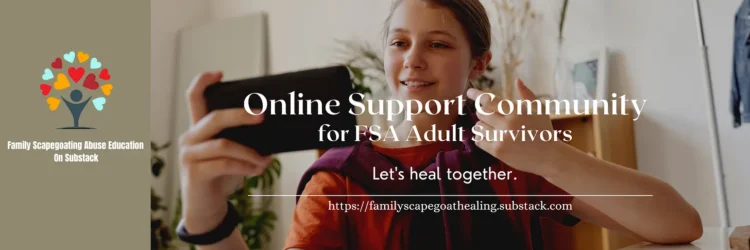
To Name the System Is To
Gain Power Over It…
I don’t just research and write about the
insidious systemic phenomenon I named
‘Family Scapegoating Abuse’ (FSA) – I’ve lived it.
There is a logic to your pain, and there is an efficient, cohesive way out. Your family system programmed a Hidden Architecture within you. I use Database Theory and Kintsugi Philosophy, as well as my peer-reviewed published FSA research, to show you the blueprints of that prison so that you can finally walk out the door.
Rebecca C. Mandeville, LMFT, CCTP
Family Systems and Scapegoat Abuse Expert
Founder, FSA Education
Welcome to my website. I’m the founding researcher who coined the term ‘Family Scapegoating Abuse’ (FSA) and the author of the best selling book, ‘Rejected, Shamed, and Blamed: Help and Hope for Adults in the Family Scapegoat Role’. I served as Core Faculty at the world-renowned Institute for Transpersonal Psychology and am the author of The Mandeville Theory of Systemic Identity Architecture (1998), on which my Kintsugi Method of FSA Recovery™ is based.
I’m also an FSA survivor.
Learn more about my research and my background.
A Commitment to FSA Education™
& Recovery for Survivors & Clinicians:
Where Scientific Authority meets Transpersonal Wisdom
FSA Education was founded by Rebecca C. Mandeville, the pioneering researcher who first named, identified, and defined the systemic phenomenon, Family Scapegoating Abuse (FSA)™. Rebecca is also the Principal Architect of a Global Movement to ensure FSA’s impact on child victims and adult survivors gains international recognition in clinical, legal, and academic settings.
Rebecca is also the creator of
the Kintsugi Method for FSA Recovery™.
SCROLL DOWN TO TAKE THE FSA SELF-TEST
Specialized resources for assessing Family Scapegoating Abuse (FSA)™ in cross-cultural settings and implementing the Kintsugi FSA Recovery Framework™ for survivors in need of intensive identity reconstruction and holistic self-restoration.
Please be advised that I have not sanctioned or licensed any third-party individuals or organizations to use the term ‘FSA’ or ‘Family Scapegoating Abuse’ as a title or descriptor for their own recovery programs, coaching services, or commercial products. Anyone utilizing these specific terms in a commercial or professional capacity is doing so without the required permissions and may be in violation of trademark and intellectual property protections.

From Shattered To Sovereign.
The Inviolate Self Project™
New Programs On the Way!
My website has recently been revised.
Scroll down to learn how you can be notified when my new
FSA survivor online community + education platform launches.
“You’re not a broken person.
You’re a person in a broken system.”
– Rebecca C. Mandeville
Licensed Marriage, Family Therapist (LMFT)
Advanced Certified Complex Trauma Treatment Professional (CCTP)
Former Core Faculty | Institute of Transpersonal Psychology (ITP)
FSA Education & Research Specialist
Director of The Inviolate Self Project
Kintsugi Method For FSA Recovery
Where clinical research meets the art of Kintsugi for
identity repair and restoration of the Inviolate Self.
Two Decades of Forensic
FSA Research
Begun twenty years ago, my FSA research represents a lifelong commitment to decoding the systemic and biological impact
of Family Scapegoating Abuse (FSA).
My latest peer-reviewed study revealed FSA’s traumatizing impact can result in Autonomic Nervous System (ANS) Dysfunction, further legitimatizing the physiological experiences of FSA survivors.
The Kintsugi Method for FSA Recovery is the clinical
and spiritual culmination of over thirty years of data,
lived experience, transpersonal insights, and a constant
commitment to the pursuit of core Wholeness.
This unique holistic pathway is based on the
Mandeville Theory of Systemic Identity Architecture™(1998)

Heal From The Outside-In™
A holistic path of identity reconstruction
and ‘true self’ integration.
- The Kintsugi Method of FSA Recovery™ (The Vision)
A holistic path of identity reconstruction and ‘true self’ integration.
- The Identity Reconstruction Framework™ (The Science)
Clinical research applied to the reclamation of your core biological reality.
- The Self-Restoration Framework™ (The Action)
Practical tools for evicting the scapegoat narrative to realign with your “Native Truth”.

Join Me on Substack
Healing the Scapegoat Wound With Rebecca LMFT
The full Kintsugi Framework and a new community education
online platform for FSA survivors are currently
in final refinement for a 2026 – 2027 release.
Sign up to my Substack. Upgrade your subscription for
early access to the 7-Day FSA Healing Protocol.
- Weekly Insights from the World’s Leading Expert on FSA
and its effects. - A Sanctuary for FSA survivors in a well-moderated
Peer-Support setting. - Early Access to the 7-Day FSA Healing Protocol on the new Community Platform I’m preparing for Survivors, Clinicians, and certified (trauma-informed) Coaches.

‘Healing the Scapegoat Wound’ on Substack
Join 4000+ subscribers
Stay in the loop with everything you need to know. Expertly crafted content to support your
FSA Recovery process.
Proprietary Intellectual Property
& Clinical Mandate
Rebecca C. Mandeville
FSA Education
The Family Scapegoating Abuse™ & FSA Education™ brand; Inviolate Self Media & Education™ and The Inviolate Self Project™ brand, the Kintsugi Method of FSA Recovery™, The Kintsugi Pathway of FSA Recovery™, Kintsugi Self-Integration Method™, the Identity Reconstruction Framework™, and the (True) Self Restoration Framework™ are the proprietary works of Rebecca C. Mandeville.
Dedicated to the forensic study and education of Family Scapegoating Abuse (FSA)™, these protocols represent over thirty years of research and the methodology for the restoration of the ‘Inviolate Self’.
Using these terms without being deeply familiar with my research dilutes recovery effects for those most in need of understanding and healing from FSA.
All rights reserved. No part of this methodology, pathway, or framework may be reproduced or utilized without
the express written permission of the Originating Source.

Coming soon:
The Kintsugi Method for FSA Recovery
Spread the News
The Inviolate Self Project™
From Shattered to Sovereign.
Coming in 2027
Kintsugi Method for FSA Recovery™ Online Program Launch
